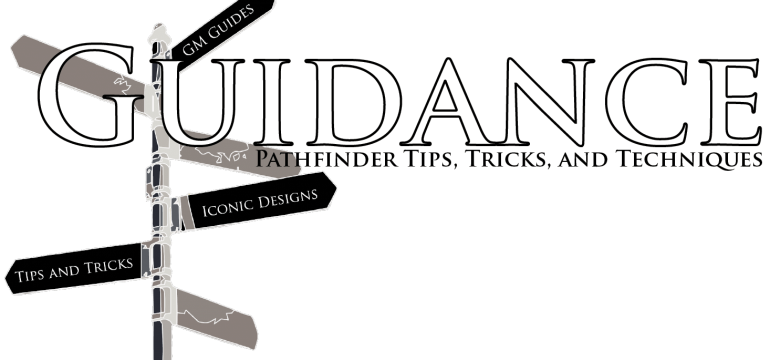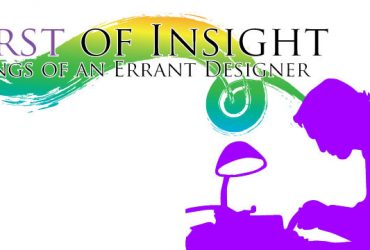For the past two months, I’ve been doing a series on freelancer marketability, and for today’s article, I really grappled with whether or not I should cover both of the final two “aspects” of freelancer marketability that we haven’t touched on yet—timeliness and innovativeness. In the end, I decided that these two are, compared to the last two, the most straightforward, so I’m going to cover them both together.
Now, I mentioned in my last article that getting freelancers to the point where they’re standardized is the hardest part of being a publisher. Well, I’m going to go ahead and say that innovativeness and creativity are the easiest, which is weird because they’re the aspects that people largely associate with writing the most. (ESPECIALLY innovativeness.) The reason that these are “easy,” however, isn’t because I have an easy time teaching them to freelancers. It’s because that both aspects are basically binary, “I have it,” or “I don’t” aspects of freelancing. Now, one shouldn’t take this as, “I don’t have this now and I never will,” because like standardization and legal, anyone can learn how to be innovative and how to be timely.
Timeliness, or Doing What You Said You Would
You would think that publishers would LOVE it when you have timeliness, right? Well, honestly, we don’t. We EXPECT timeliness, and are infuriated by lateness. Basically, timeliness factors in heavily to your overall professionalism as a writer. Do you get things done when we’ve agreed that they need to be done? Are milestones in at the right time? Do you have the turnover ready when I need it? That sort of thing. Being timely is more of a maintenance thing—you’re maintaining the already understood notion that you are a competent worker. You’re only ever really going to “stand out” for timeliness if your publisher contacts you with a rush job, you accept it, and you manage to meet their rushed deadline. For example, when I worked on Weapon Master’s Handbook with David N. Ross, we were both given a time table for 16 pages (about 24,000 words) with a two-week turnaround, and GenCon fell on one of those weeks (which we were both attending). However, we both succeeded and subsequently, we both got more work from our developer as a result of us being able to help as quickly as we did. And that’s what “timeliness” is—a means to either get more work, or never work with that publisher again.
Innovativeness, or That Thing Called Writing
Hey! It took us almost two months to get here, but now we’re FINALLY going to talk about your writing ability. Your innovativeness can and will get you jobs. This is a fact, but like timeliness, this isn’t something I can teach you. If your head isn’t filled with good ideas, well, then you need to fill it up yourself. The best way to do this is to consume LOTS of information. Other writers will often tell you to stick to stories, video games, fantasy TV, and the like, but let me tell you that sources like that do NOT lead to innovation. Why? Because that’s where EVERYONE goes, and if you want to be innovative, you can’t be “everyone.” So really, the best thing you can do is read, learn, and RESEARCH. Researching is SUCH a huge part of innovation, I cannot even begin to describe it to you. Like, seriously—when other people ask me about my writing work the #1 misconception that they make is assuming that I just sit down at a keyboard, crack my knuckles, and stuff flows onto the page. That is not how writing works. Not. At. All. You need to KNOW things to be able to write about them, so researching the story you want to tell and experiencing it for yourself is the best way to do that.
To give an example, I’ve been working on my first published adventure, a Fox’s Wedding, for a while. Now, there’s a hefty portion of my adventure is set to take place in the spirit world, and I only have a little bit of a background knowledge on eastern “spirit world” ideology. (I watched both Avatar series for their take on it, so that was my basis.) So, what did I decide to do? I researched fantasy and literary takes on the concept of a spirit world. I read historical texts that discussed the myths, and I sat down and watched one of the most famous spirit world movies, Spirited Away. The hours I spent doing that research gave me plenty of things to think about that ultimately improved my ability to write the story I wanted to tell.
It doesn’t matter whether you’re writing an adventure, a campaign setting, or rules—research, research, RESEARCH! After all, all good ideas are built upon the shoulders of the ideas that came before.
Final Thoughts
Well, there you have it! With this final article, you have all my thoughts on what you need to do and know to be a successful freelancer for a tabletop roleplaying game. The work is never as easy as you think it’ll be, but it is very fun and fulfilling to see your name in an official product. It takes MONTHS, if not YEARS of work to get to the point where “senpai notices you,” so to speak, but if you work hard and make yourself marketable by using the steps described here, you’ll be well on your way to building up the game you love so very much!
So until next time, I’m Alex Augunas and I’m always here for YOU when you need a little bit of Guidance. Take care!
Alexander “Alex” Augunas has been playing roleplaying games since 2007, which isn’t nearly as long as 90% of his colleagues. Alexander is an active freelancer for the Pathfinder Roleplaying Game and is best known as the author of the Pact Magic Unbound series by Radiance House. Alex is the owner of Everyman Gaming, LLC and is often stylized as the Everyman Gamer in honor of Guidance’s original home. Alex also cohosts the Private Sanctuary Podcast, along with fellow blogger Anthony Li, and you can follow their exploits on Facebook in the 3.5 Private Sanctuary Group, or on Alex’s Twitter, @AlJAug.






